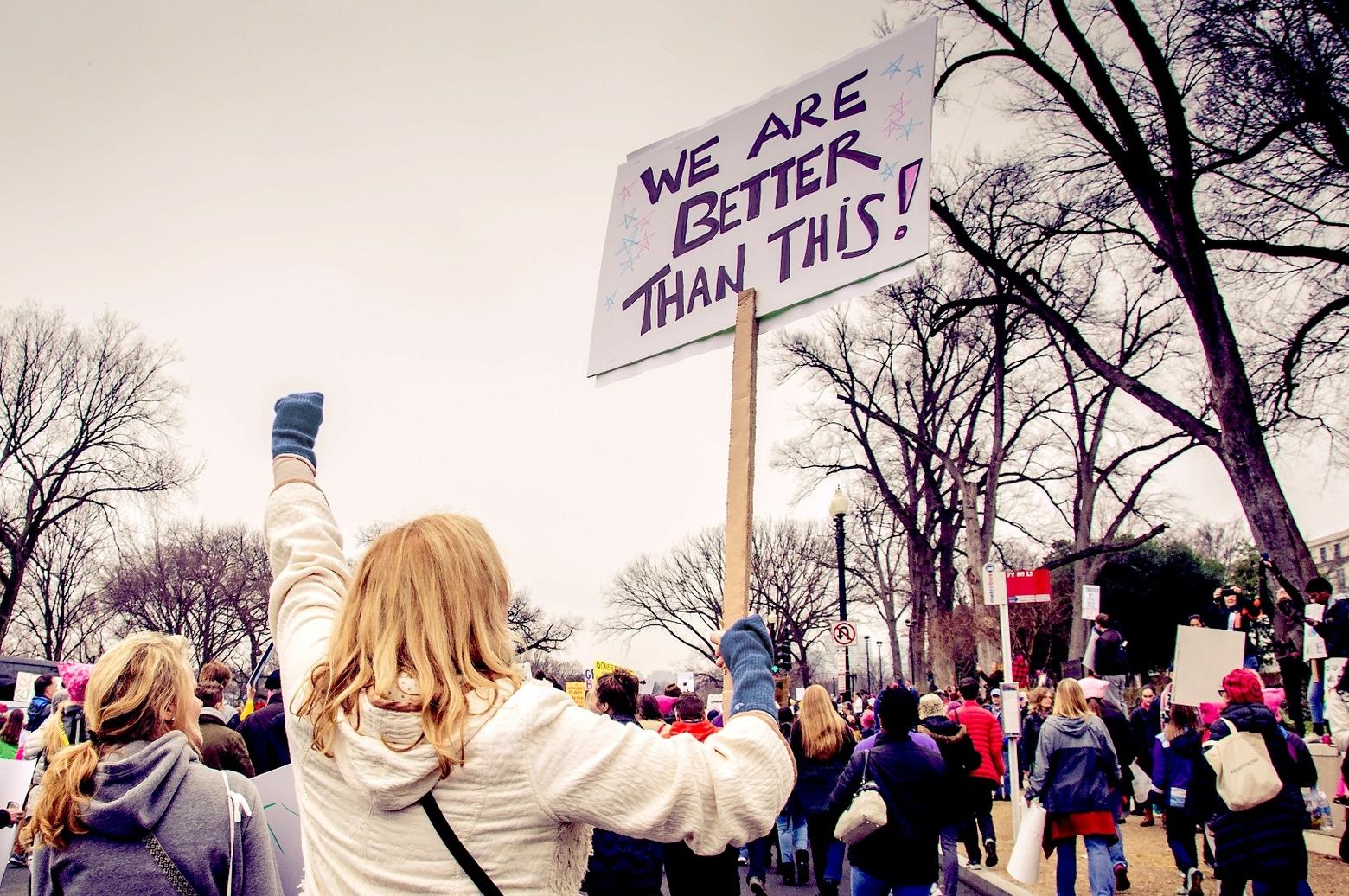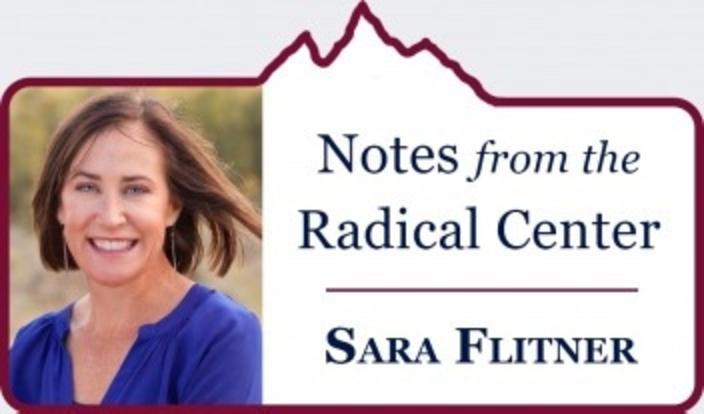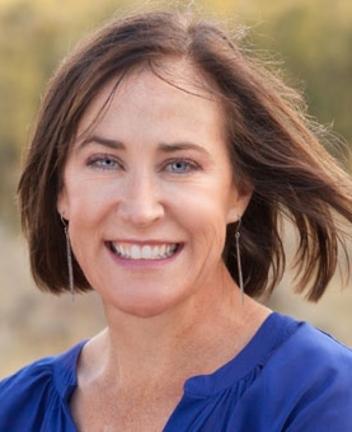Back to Stories
January 15, 2018
If We Want Civility, We Must Loosen Our Strangleholds Of Self-Certainty
A Wyoming Rancher's Daughter Who Became Mayor In Jackson Hole Says We Need More Neighborly Empathy
I
was driving at dusk, through the 5 pm snarl of dads getting kids to basketball
practice in busy Jackson, and moms heading home from work. Once again, the most
boring and frequent question swirled in my head: “What in the hell can I make
for dinner?” Spoiler alert: carne asada tacos, again.
I
stopped at an intersection and was waved through by another driver, or at least
that’s what it looked like to me. I delightedly proceeded through the intersection,
showing my appreciation with a wide smile and an enthusiastic wave.
When
I drove by, he looked confused, maybe even pained. Then he plastered his face
with a smile and waved back. I drove a block thinking, “how nice”, before the
obvious occurred to me: had he been waving
at me with, say, a middle finger instead of his whole hand? But, by then I was
already committed to the version of the story that had a smiley ending, and my
mood was a lot better sticking to that.
We’ve all experienced how rigid
assumptions can stall negotiations and how often the assumptions are wrong. But
these mindless reactions, these untended negative scripts we apply to everyone
from the careless driver to the divergent opinion-holder, wreak havoc on the
health of our bodies and our communities.
In our desire to secure safety for
ourselves, our kids, even the planet, how we try to douse our fear of
uncertainty with certainty. Certainty
that we know where the other person is really coming from (through an
intersection, in my case). We even have this odd habit, I’ve noticed, upon
hearing bad news. We begin the process of sorting for certainty that the bad
thing will never happen to us, that there is a “right camp" and we’re in it:
Heart attack? “You know she didn’t
take care of herself. Would drive to the clothesline if she could.”
Bad kids? “Bad parenting.”
Car accident? “I heard he wasn’t
wearing a seat belt.”
We live in increasingly complicated
times, and we are constantly sorting for certainties that will keep us in the
“safe” zone. The thing is, few things other than gravity and math are reliable in
every interpretation.
Another thing is, the buzz of
certainty and self-righteousness are pretty fast and fleeting. For all its
preliminary exhilaration, it’s only a handful of seconds before the real cost
of anger, fear and attacking criticism start to burrow into your blood vessels,
heart muscles, and neural networks.
Our bodies process these states –
anger, fear, attacks or criticisms – as threats to our safety, and fires our
amygdalas into “all hands on deck” modes to ensure our physical safety. While
it takes a mere fifth of a second to be triggered into anger (as the guy who
might have, in fact, been flipping me off, for instance, but whom I will
probably never see again) but more than 20 minutes to settle cortisol and
hormone surges back to normal, healthy levels.
Our bodies aren’t built to sustain
this heightened state of fight or flight anxiety, and left untended, the alarm
bell turns into a ticking time bomb that detonates our well-being.
Research paints a very real picture
on the negative impacts of how we process emotional threats and sequester
ourselves into closed mindedness. It looks like aging, disease, and premature
death. And that’s the good part, because at least you are out of your misery. Yet
consider that in your efforts to be a more curious, open person, you are
actually going to experience – both physiologically and emotionally – a much higher quality of life. Turns out, it’s kind of a drag to be mad all
the time.
There is so much to our present
divisive world that needs fixing, it’s true. The enlivening detail is that the
most powerful actions are the small and daily choices we make to put a little
in savings, refrain from a small spite, offer time we don’t have to the
colleague struggling with a vexing problem.
Life – and you know this – is the
culmination of days that are lived moment by moment, not the reflection of what
happened out of the blue one Tuesday in 2016. How we show up in these moments
defines our character, our compassion, our humanity. And what I hear from the
coffee shop to the chairlift is a desire to stop this collective yelling
contest we are having. There is no medal for meanest loudmouth.
Looking around, the most effective
people over the long term are the ones that exhibit empathy over chest-pounding,
but they are far from weak or ineffective. Martin Luther King. Abraham Lincoln.
Oprah. These greats, and many like them, derived their power from connecting to
living rooms, the lives in the landscapes and streets, the suffering and
celebrating that went on there. These examples remind me that the bedrock for
healing our divided states of America is not necessarily in agreeing, but in
sharpening our understanding instead of our knives.
"Understanding the other view is not a weakness or an affliction...and more often than not can strengthen organizational, relationship or political strategies. Understanding, not information, is the real power."
Here’s what I’m going to try to do.
Listen first. Assume the person
cutting me off must have a really important doctor’s appointment, and let her
go first. Encourage myself to get curious about what my colleague with the
opposing position can teach me. Understanding the other view is not a weakness or an affliction after all, and more often than not can strengthen
organizational, relationship or political strategies. Understanding, not
information, is the real power.
What is possible if we adopt a
mindset of curiosity over certainty. Maybe we could abandon our precious
rigidity and replace it with the habit of saying every kind thought that comes
into our head out loud.
Maybe we could relearn the 4-H
creed and live by it. (“I pledge my head to clearer thinking, my heart to
greater loyalty, my hands to larger service and my health to better living, for
my club, my community, my country and my world.”) It can work for grownups, too.
What if we assumed that everyone
behaving badly in traffic is just on their way to their shift at the local
hospital, or to show up for their kid’s spelling bee finals? Likely, it’s the
truth.
May 2018 shower you with gratitude
for life and work in the West. May your neighbors be happy for your successes
and help you make your life a practice
for seeing what ways we’re all doing the best we can.




